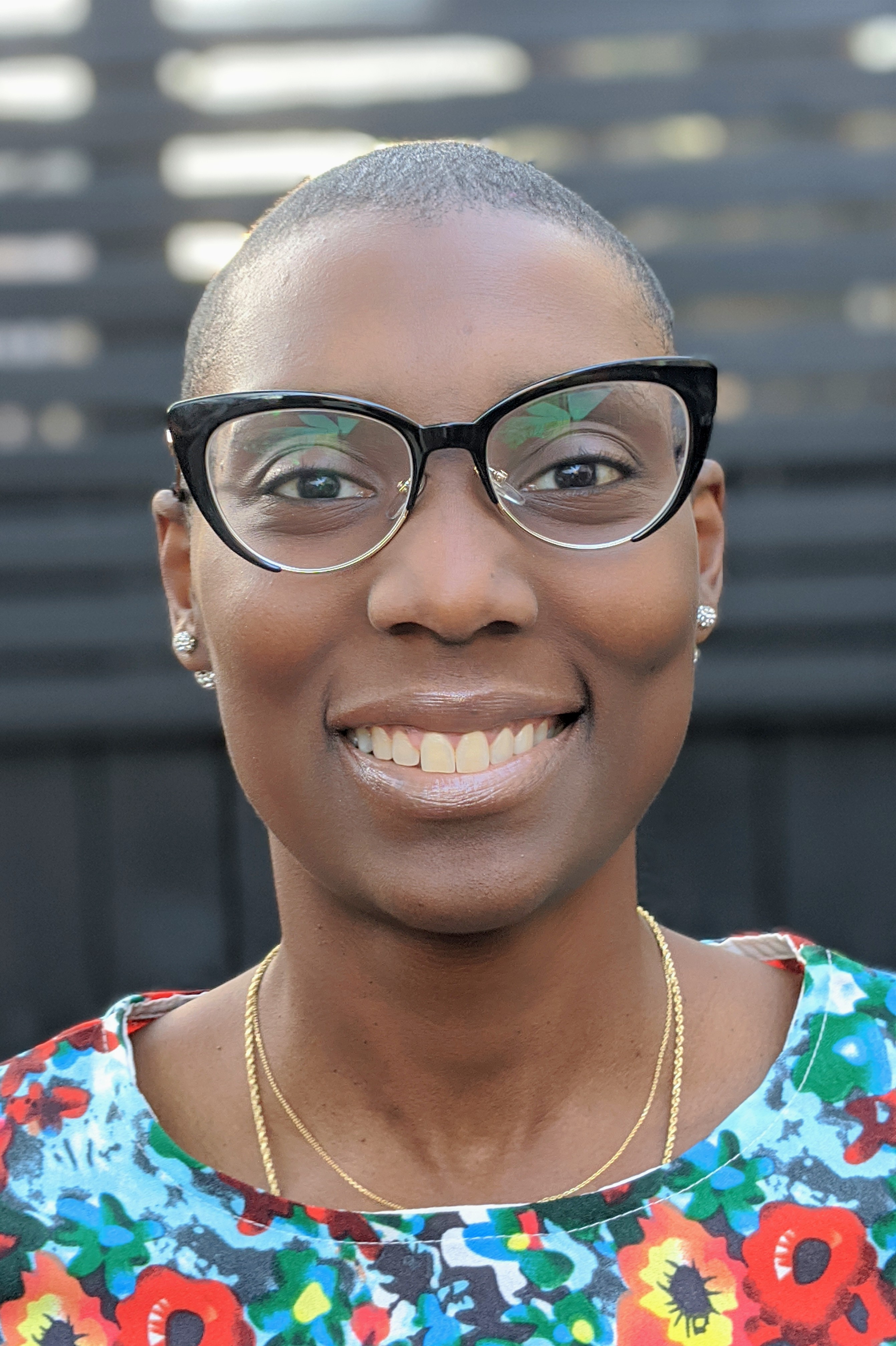Staff Developer Spotlight: Nicole Lavonne Smith
"Be brave in your teachings and don't let denial and biases get in the way of your personal growth and progress – and our collective healing," says Nicole.
"Be brave in your teachings and don't let denial and biases get in the way of your personal growth and progress – and our collective healing," says Nicole.
 Nicole Lavonne Smith is a restorative justice practitioner, coach and trainer who specializes in anti-racism, racial justice, and equity and diversity training and consulting. She is a Morningside Center staff developer and a contributing writer for TeachableMoment.
Nicole Lavonne Smith is a restorative justice practitioner, coach and trainer who specializes in anti-racism, racial justice, and equity and diversity training and consulting. She is a Morningside Center staff developer and a contributing writer for TeachableMoment.
Nicole is skilled in planning and executing healing and wellness events to raise social consciousness and build community. Prior to her work in restorative justice, Nicole was a dedicated New York City educator for two decades, teaching English, environmental science, and capoeira, and advocating for culturally responsible education. Nicole holds a Masters in Urban Planning and International Development from New York University and a Bachelor in Psychology from Howard University. She resides in Brooklyn, New York, with her husband and two sons.
Nicole has launched a new podcast, along with her restorative justice colleague Suzanne Hitchman, called BCTW (for "But Can We Work Together, Though?") about their years-long cross-racial collaboration. Check out their warm, funny and insightful dialogue here.
What brought you to this work?
My love for my community, and hope for the future of our youth brought me to this work. All of the things I desired out of my k-12 education that were lacking – that brings me to this work. Wanting to fill as many voids as possible, and to be a resource and a source of inspiration, especially for children of color, that brought me to the field of education, and kept me there for 20 years. The realization that as a teacher, everything I did was in the name of racial and social justice, and in honor of my ancestors, and steeped in culture, and healing for me as well as those I work for and with—that brought me to restorative justice work, specifically.What is the thing that you most love about it?
I love a lot of things about this work: having a voice that I can share; the deep connections made--emotionally and mentally; the moments when I witness growth, inspiration, or enlightenment occurring for others; being able to celebrate culture, ancestral pride, legacies of liberation and justice; my own healing, and having an outlet for and insight into all of the emotions I hold daily as a Black person living under systemic racism in a white-dominated society; being able to support and advocate for my own sons – that’s just some of what I love most.What is the thing that is most challenging?
Most challenging is being deeply entrenched in work that can be so heavy, within a world that is so heavy, without an out. I'm all the way in it, all day, every day – personally and professionally. Also challenging is engaging in restorative justice work with people who are not really ready or interested in doing lasting, sustaining, meaningful, deep work.What is one helpful suggestion (or statement of support) you’d offer to educators right now?
Regarding the reopening of schools in the Covid era: Take care of yourselves first. Make the decisions that make sense for you, your family, and your own health. Regarding this moment, the past, and the future of education and curriculum, your responsibility to students and to society – be brave in your teachings, center anti-racism, and marginalized populations, explicitly. Continue to educate yourself around systemic oppression and white supremacist culture, and the ways that you can fight against it all. Be accountable, and don't let denial and biases get in the way of your personal growth and progress – and our collective healing.
See Nicole's lessons and posts:
When Do We Celebrate?
"This year, Juneteenth and the 4th of July arrived amidst a protest party in full swing. In my social circles, both days were heightened displays of Black love and joy, Black pain and resistance," writes Morningside Center staff developer Nicole Lavonne Smith.
Music as Fuel for the Struggle
This activity invites students to listen to and share music that can inspire and sustain them as they explore ways to battle oppression and push to survive and thrive during these challenging times.
I Learned it in Homeschool: Plans for Learning during Covid-19
This activity, aimed at caregivers and their middle or high-schoolers, provides a student-driven process for young people to think flexibly and creatively about their opportunities for learning during this period, formulate ideas, and follow through on them.
Delivering Joy in this Moment
Students explore ways to creatively connect, show each other support, and display kindness amid this pandemic.
Seeing Racism’s Impact through Toni Morrison’s The Bluest Eye
This lesson plan encourages high school students to explore the impact of racism as a central theme of Toni Morrison’s 1970 debut novel, The Bluest Eye. It includes suggestions for engaging students before, during, and after they read the book.